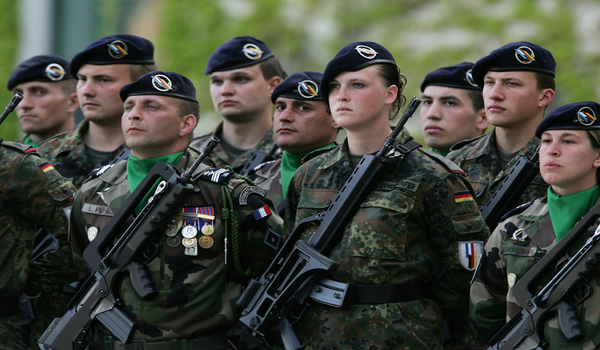European Army: Rhetoric versus Reality
European federalists seeking to transform the 27-member European Union into a European superstate — a so-called United States of Europe — have revived a decades-old proposal to build a European army.
European Army: Rhetoric versus Reality
Soeren Kern | Gatestone Institute | November 7, 2021
European federalists seeking to transform the 27-member European Union into a European superstate — a so-called United States of Europe — have revived a decades-old proposal to build a European army.
The call for a supranational army, part of a push for Europe to achieve “strategic autonomy” from the United States, is being spearheaded by French President Emmanuel Macron, who, as part of his reelection campaign, apparently hopes to replace outgoing German Chancellor Angela Merkel as the de facto leader of Europe.
Macron claims that Europe needs its own military because, according to him, the United States is no longer a reliable ally. He cites as examples: U.S. President Joe Biden’s precipitous withdrawal of American troops from Afghanistan; the growing pressure on Europe to take sides with the United States on China; and France’s exclusion from a new security alliance in the Indo-Pacific region.
Many EU member states disagree with Macron. Eastern European countries, some of which face existential threats from Russia, know that neither the EU nor France can match the military capabilities offered by NATO and the United States. Other countries are concerned about a panoply of issues ranging from financial costs to national sovereignty. Still others are opposed to creating a parallel structure to NATO that could undermine the transatlantic alliance. A common EU army appears to be a long way from becoming reality.
A logical course of action would be for EU member states (which comprise 21 of the 30 members of NATO) to honor past pledges to increase defense spending as part of their contribution to the transatlantic alliance. That, however, would fly in the face of the folie de grandeur — the delusions of grandeur — of European federalists who want to transform the EU into a major geopolitical power.




